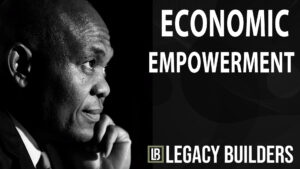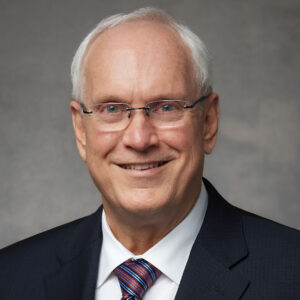Reward Employees for Teamwork

Reward Employees for Teamwork
By Joanna L. Krotz
We’ve all heard the lecture. Success is built on teamwork. Each and every employee has value. Rah, rah, rah.
Yet when the chips are on the table, it’s the lone rangers who walk away with big promotions, boffo salaries, and all the bravos. Managers talk about supporting the team, but they often structure compensation around star performance, which penalizes mentoring and other good business practices.
As the business climate gets tougher before it gets better, it’s time to walk the talk if you want to grow. Managers will need all the teamwork videos for employees they can get in 2003, experts say. So you’d be wise, they say, to rethink your policies and maybe the entire compensation system. Find ways to truly recognize collaboration, and you’ll be better positioned to grow.
How can a business put rewards to smarter use?
Here are some companies that beat the competition by rewarding teams, and also some ideas to put money where your motivation should be.
Team reward system building pays
When companies recognize teamwork with tangible rewards, they become more productive and better at retaining employees. Besides boosting profits, stable staff cuts the costs of recruiting and training.
In his just-published book, “Less Is More: How Great Companies Use Productivity as a Competitive Tool in Business,” best-selling author Jason Jennings analyzes what his team of researchers determined to be the 10 most productive companies in the world, such as furnishings company Ikea, European air carrier Ryanair and New Zealand discounter The Warehouse.
“The traits these companies have in common are that they put people on teams and they pay teams real money,” Jennings says. “They do not encourage lone wolf or star performance, even for the CEO.” And another common thread: The companies do not lay off workers when times turn hard. They find ways to pull together to cope and compete. They share a managerial mindset that sees employees as assets rather than as costs.
Nucor, a steel company headquartered in Charlotte, N.C., pays each worker only a $20,000 annual base salary, but provides an additional $80,000 (on average) when the teams of six to 12 workers meet targets. Everyone’s paycheck depends on how much steel his or her team produced. Everyone shares equally in bonuses.
Nucor has had 131 quarters of profitability, and an average of 20% annual growth, says Jennings. And that’s in an industry that’s been shrinking for years.
How to reward employees for good performance
As you know, automatic salary increases have become as exotic as company-paid pensions. But if you think nouveau pay-for-performance policies motivate & how to reward teamwork, think again. Variable pay flows toward individual accomplishment, too.
In its 2002-03 survey of company budgets for salary increases, WorldatWork (formerly the American Compensation Association) found that 65% of small businesses have variable pay policies. Yet a scant 30% used group or team awards. Again, it’s lone performers that rate; 82% of small businesses used variable pay for special individual recognition and 74% for individual incentive awards. If you want to build teams, you need to work at restructuring your reward employees’ systems. Begin with communication, not cash.
Set the stage
“Step back and set the right expectations,” advises Rodger Stotz, managing consultant at Maritz, an international research and performance-improvement company based in St. Louis. Develop in your managers and staff an appreciation for the potential of teamwork.
Here are four key steps:
Make sure your words and efforts coincide. Don’t talk up teamwork and then empower the player who always goes to the hoop and never passes. “Live the example,” Stotz says.
Share experiences that validate team achievements. Send around press clips or white papers that track data. Take the staff on a field trip to interact with a company that depends on team compensation. Provide anecdotes about what you’ve seen and why collaboration works.
Get customer and employee feedback to test how it’s going and to tap staff anxiety or buy-in. Keep surveying.
Quantify how employees and teams contribute to the bottom line. Called “line of sight” by the compensation pros, this means each worker must see a direct path between his or her effort and the impact on profit.
Small businesses have an obvious advantage. Employees can measure their critical roles in small companies much more easily than in large corporations.
We hope you found this article about “Reward Employees for Teamwork” helpful. If you have questions or need expert tax or family office advice that’s refreshingly objective (we never sell investments), please contact us or visit our Family office page or our website at www.GROCO.com. Unfortunately, we no longer give advice to other tax professionals gratis.
To receive our free newsletter, contact us here.
Subscribe to our YouTube Channel for more updates.

Alan Olsen, is the Host of the American Dreams Show and the Managing Partner of GROCO.com. GROCO is a premier family office and tax advisory firm located in the San Francisco Bay area serving clients all over the world.
Alan L. Olsen, CPA, Wikipedia Bio

GROCO.com is a proud sponsor of The American Dreams Show.

The American Dreams show was the brainchild of Alan Olsen, CPA, MBA. It was originally created to fill a specific need; often inexperienced entrepreneurs lacked basic information about raising capital and how to successfully start a business.
Alan sincerely wanted to respond to the many requests from aspiring entrepreneurs asking for the information and introductions they needed. But he had to find a way to help in which his venture capital clients and friends would not mind.
The American Dreams show became the solution, first as a radio show and now with YouTube videos as well. Always respectful of interview guest’s time, he’s able to give access to individuals information and inspiration previously inaccessible to the first-time entrepreneurs who need it most.
They can listen to venture capitalists and successful business people explain first-hand, how they got to where they are, how to start a company, how to overcome challenges, how they see the future evolving, opportunities, work-life balance and so much more..
American Dreams discusses many topics from some of the world’s most successful individuals about their secrets to life’s success. Topics from guest have included:
Creating purpose in life / Building a foundation for their life / Solving problems / Finding fulfillment through philanthropy and service / Becoming self-reliant / Enhancing effective leadership / Balancing family and work…

MyPaths.com (Also sponsored by GROCO) provides free access to content and world-class entrepreneurs, influencers and thought leaders’ personal success stories. To help you find your path in life to true, sustainable success & happiness. It’s mission statement:
In an increasingly complex and difficult world, we hope to help you find your personal path in life and build a strong foundation by learning how others found success and happiness. True and sustainable success and happiness are different for each one of us but possible, often despite significant challenges.
Our mission at MyPaths.com is to provide resources and firsthand accounts of how others found their paths in life, so you can do the same.
Dr. Stel Nikolakakis on The Power of Vision Therapy
Unlocking Potential: The Power of Vision Therapy Vision therapy is emerging as a transformative tool for individuals with learning disabilities, ADHD, concussions, and even high-performance athletes. Dr. Stel Nikolakakis, an optometrist and a pioneer in neuro-visual training, discovered the profound impact of vision therapy through a deeply personal experience—his son’s diagnosis with cerebral palsy. His…
Entrepreneurship and Economic Empowerment: The Path to Sustainable Growth
Entrepreneurship has long been recognized as a powerful driver of economic growth and social transformation. Across the globe, individuals with innovative ideas and the determination to bring them to life have created businesses that fuel economies, generate employment, and uplift communities. Nowhere is this potential more evident than in Africa, where a young, vibrant population…
Bob Gay on The Pillars of Self-Reliance
The Pillars of Self-Reliance At the recent Legacy Builders Conference, Robert Gay captivated the audience with a profound message: true impact comes not from handouts, but from empowering individuals to achieve self-reliance. A distinguished investor, philanthropist, and humanitarian, Gay has spent decades applying the principles of entrepreneurship and accountability to lift millions out of poverty.…
The Future of Sustainable Philanthropy
At the Legacy Builders 2025 Conference, three leading voices in philanthropy-Mark Lutz, Pamela Hawley, and Zoe Ryan-came together to share their insights on how to create lasting, community-driven impact in global development. While their experiences and approaches varied, a common theme emerged: true sustainability in philanthropy begins with listening to, investing in, and empowering local leadership. Mark Lutz: Building…



